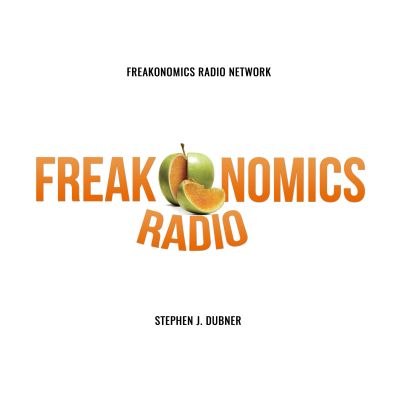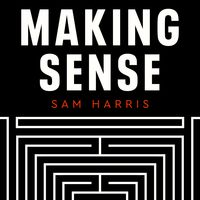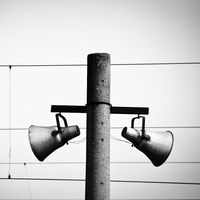Freakonomics co-author Stephen J. Dubner uncovers the hidden side of everything. Why is it safer to fly in an airplane than drive a car? How do we decide whom to marry? Why is the media so full of bad news? Also: things you never knew you wanted to know about wolves, bananas, pollution, search engines, and the quirks of human behavior. Join the Freakonomics Radio Plus membership program for weekly member-only episodes of Freakonomics Radio. You’ll also get every show in our network without ads. To sign up, visit our show page on Apple Podcasts or go to freakonomics.com/plus.
https://freakonomics.com
Gesamtlänge aller Episoden: 21 days 22 hours 7 minutes
recommended podcasts
episode 14: 14. Do More Expensive Wines Taste Better?
They should! It's a cardinal rule: more expensive items are supposed to be qualitatively better than their cheaper versions. But is that true for wine?
episode 13: 13. The "No-Lose Lottery," Part 2
It’s the banking tool that got millions of people around the world to stop wasting money on the lottery. So why won't state and federal officials in the U.S. give it a chance?
episode 12: 12. Is America Ready for a "No-Lose Lottery"?
For the most part, Americans don't like the simple, boring act of putting money in a savings account. We do, however, love to play the lottery. So what if you combined the two, creating a new kind of savings account with a lottery payout?
episode 11: 11. How Much Does the President of the U.S. Really Matter?
The U.S. president is often called the "leader of free world." But if you ask an economist or a Constitutional scholar how much the occupant of the Oval Office matters, they won't say much. We look at what the data have to say about measuring leadership, and its impact on the economy and the country.
episode 10: 10. The NFL's Best Real Estate Isn't For Sale. Yet.
The NFL is very good at making money. So why on earth doesn't it sell ad space on the one piece of real estate that football fans can’t help but see: the players themselves? The explanation is trickier than you might think. It has to do with Peyton Manning, with Eli Manning, and with ... wait for it ... Tevye.
episode 9: 9. Reading, Rockets, and 'Rithmetic
Government and the private sector often feel far apart. One is filled with compliance-driven bureaucracy. The other, with market-fueled innovation. But something is changing in a multi-billion dollar corner of the Department of Education. It's an experiment, which takes cues from the likes of Google and millionaires who hope to go to the moon.
episode 8: 8. Who Stole All the Runs in Major League Baseball?
It was a pretty good baseball season -- especially if you're a fan of the Yankees, Rays, Twins, Rangers, Reds, Braves, Phillies, or Giants, all of whom made the playoffs. But the post-season just opened with a telling event, a no-hitter pitched by the Phillies' Roy Halladay, which shows what's been missing all season: runs.
episode 7: 7. Two Book Authors and a Microphone
The next chapter in the adventures of Dubner and Levitt has begun. Listen to a preview of what's to come for the fall season of Freakonomics Radio.
episode 6: 6. Why the World Cup Is an Economist's Dream
Steve Levitt talks about why the center cannot hold in penalty kicks, why a running track hurts home-field advantage, and why the World Cup is an economist's dream.
episode 5: 5. How Is a Bad Radio Station Like Our Public-School System?
In this episode of Freakonomics Radio, we explore a way to make 1.1 million schoolkids feel like they have 1.1 million teachers.








































